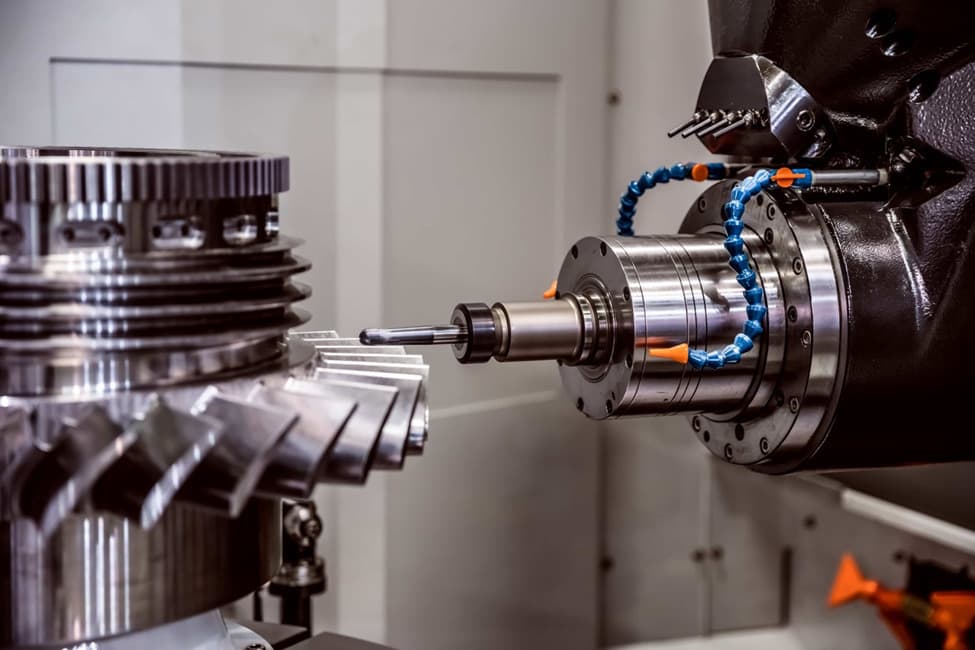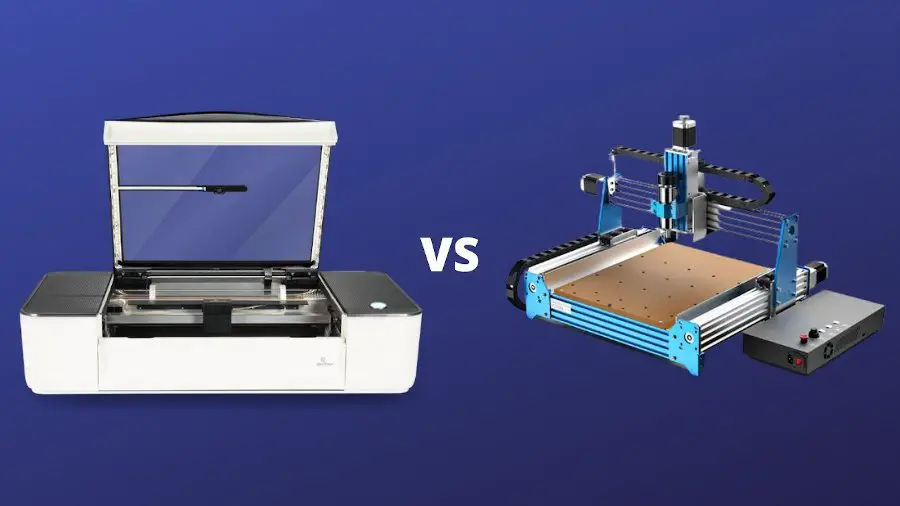In today’s world, precision is everything, especially when it comes to industrial manufacturing. This is where CNC machines come in. CNC, or Computer Numerical Control, machines are a type of manufacturing equipment that utilize computer programming to create precise and intricate designs. But how exactly do these machines achieve such high levels of accuracy?
The answer lies in their sophisticated technology and intricate design. CNC machines use a variety of sensors and tools to measure and adjust their movements, ensuring that every cut, drill or bend is executed with pinpoint accuracy. From controlling the speed and direction of the cutting tool to adjusting the pressure and temperature of the material being worked on, CNC machines leave nothing to chance.
Industrial CNC machines are incredibly precise due to their advanced technology and design. These machines use computer software to control their movements, allowing for accuracy down to the micro-level. Additionally, many CNC machines utilize high-quality materials and components, such as linear guides and ball screws, to minimize any potential errors. Overall, the combination of advanced software and high-quality components results in industrial CNC machines that are capable of achieving unparalleled levels of precision.
How Are Industrial CNC Machines So Precise?
Industrial CNC (Computer Numerical Control) machines have revolutionized the manufacturing process by providing a high level of accuracy in the production of complex parts. These machines use computer programs to control the movement of cutting tools with extreme precision. In this article, we will explore the technology behind industrial CNC machines and how they are able to achieve such high levels of precision.
1. The Role of CNC Software
CNC machines are programmed using specialized software that allows operators to create detailed designs and instructions for the machine to follow. The software converts these instructions into machine-readable code that directs the cutting tools to move with precise accuracy. The software also allows operators to adjust the speed and intensity of the cutting process to ensure the best results.
In addition, the software can simulate the cutting process to identify any potential issues before the actual cutting begins. This helps to minimize errors and waste, resulting in a more efficient and cost-effective manufacturing process.
2. The Importance of Machine Calibration
One of the key factors in achieving precise results is the calibration of the machine. The calibration process involves adjusting the machine’s components to ensure that they are aligned correctly and moving smoothly. This includes the cutting tools, the spindle, and the worktable.
During the calibration process, the machine is tested using a range of measurements to ensure that it is operating within the required tolerances. This helps to ensure that the final product meets the required specifications and is of the highest quality.
3. The Benefits of Using CNC Machines
The use of industrial CNC machines offers a range of benefits for manufacturers. These include:
- Improved accuracy and precision
- Higher productivity and efficiency
- Reduced waste and errors
- Greater flexibility and customization
- Lower costs and increased profitability
In addition, CNC machines can be programmed to produce a wide range of parts and products with minimal setup time. This makes them ideal for small-batch and custom manufacturing, as well as large-scale production.
4. CNC Machines vs. Traditional Manufacturing Methods
Compared to traditional manufacturing methods such as manual machining, CNC machines offer several advantages. These include:
- Greater precision and accuracy
- Higher productivity and efficiency
- Consistency of results
- Lower costs
Traditional manufacturing methods require skilled operators who have to manually control the cutting tools. This can result in human error and inconsistencies in the final product. CNC machines, on the other hand, are programmed to follow precise instructions, resulting in consistent and accurate results every time.
5. Common Applications of CNC Machines
CNC machines are used in a wide range of industries, including:
- Aerospace
- Automotive
- Construction
- Electronics
- Medical
- Manufacturing
They are used to produce a variety of parts and products, including engine components, circuit boards, surgical instruments, and architectural components.
6. Future Developments in CNC Technology
As technology continues to advance, the capabilities of industrial CNC machines are likely to expand. This includes the use of artificial intelligence to optimize the cutting process and improve efficiency. There is also a growing trend towards the use of 3D printing technology with CNC machines to produce complex parts and prototypes.
In addition, the development of new materials and alloys is likely to increase demand for CNC machines that can handle these materials with precision and accuracy.
7. Conclusion
Industrial CNC machines have transformed the manufacturing process by allowing for greater accuracy, efficiency, and flexibility. They offer a range of benefits over traditional manufacturing methods and are used in a wide range of industries to produce a variety of parts and products.
As technology continues to evolve, we can expect to see further developments in CNC technology that will further enhance their capabilities and expand their applications.
Frequently Asked Questions
Industrial CNC machines are known for their precision and accuracy. However, not many people know how they achieve this level of precision. In this section, we will answer some of the frequently asked questions about how industrial CNC machines are so precise.
How do industrial CNC machines work?
Industrial CNC (Computer Numerical Control) machines are used to automate the manufacturing process. They are programmed to execute a set of commands to control the movement of cutting tools and other machinery. These machines are capable of producing highly complex and precise parts at a faster rate than traditional manufacturing methods.
CNC machines work by interpreting a set of instructions that are programmed into a computer. These instructions are sent to the CNC machine, which then moves the cutting tool along multiple axes to produce the desired shape or design.
What makes industrial CNC machines so precise?
Industrial CNC machines are designed to be highly precise and accurate. They incorporate a variety of advanced technologies that help them achieve this level of precision. One of the key factors that make CNC machines so precise is their ability to repeat the same motion over and over again. This is accomplished through the use of precision ball screws, linear guides, and high-resolution encoders.
In addition, CNC machines are equipped with software that allows them to make precise adjustments to the cutting tool’s position and speed. This software can also compensate for any slight variations in the material being cut, ensuring that each part is produced with the same level of precision.
What are some of the benefits of using industrial CNC machines?
There are many benefits to using industrial CNC machines in the manufacturing process. One of the most significant benefits is their ability to produce complex and precise parts at a faster rate than traditional manufacturing methods. This results in increased productivity and efficiency, which can lead to higher profits and a competitive advantage.
CNC machines also offer greater consistency and accuracy than manual machining methods. They can work around the clock without the need for breaks, resulting in a more efficient production process. Additionally, CNC machines can be programmed to produce a wide range of parts, making them versatile and adaptable to changing manufacturing needs.
How do CNC machines compare to traditional manufacturing methods?
CNC machines offer numerous advantages over traditional manufacturing methods, including greater precision, speed, and efficiency. With traditional manufacturing methods, parts are often produced manually, which can lead to inconsistencies and errors. CNC machines, on the other hand, are programmed to execute a set of commands precisely, resulting in highly accurate and consistent parts.
CNC machines also offer greater flexibility than traditional manufacturing methods. They can be programmed to produce a wide range of parts, making them adaptable to changing manufacturing needs. Additionally, CNC machines can work around the clock without the need for breaks, resulting in a more efficient production process.
What industries use industrial CNC machines?
Industrial CNC machines are used in a wide range of industries, including aerospace, automotive, medical, and electronics. They are particularly useful in industries that require highly complex and precise parts, such as the aerospace industry. CNC machines are also used in the production of consumer goods, such as electronics, appliances, and furniture.
Overall, any industry that requires precision, efficiency, and versatility in their manufacturing process can benefit from using industrial CNC machines.
In conclusion, the precision of industrial CNC machines is a result of their advanced technology and intricate design. These machines are capable of performing complex tasks with accuracy and consistency, making them essential tools in modern manufacturing. The use of high-quality materials, precise programming, and advanced sensors ensures that each part produced meets the required specifications.
Furthermore, the precision of these machines has revolutionized the manufacturing industry, allowing for faster and more efficient production. This has led to an increase in productivity and a reduction in costs, making it easier for companies to meet the demands of their customers. The ability to produce large quantities of high-quality parts in a short amount of time has also given businesses a competitive edge in the market.
Overall, the precision of industrial CNC machines is a testament to the advancements made in technology and engineering. As these machines continue to evolve, we can expect even greater levels of accuracy and efficiency in the manufacturing industry.
Request a quote today!
[contact-form-7 id="1578" title="Contact form"]
Please compress the file into a ZIP or RAR file before uploading. Alternatively, send through your RFQ by email.
enquires@unitymanufacture.com





